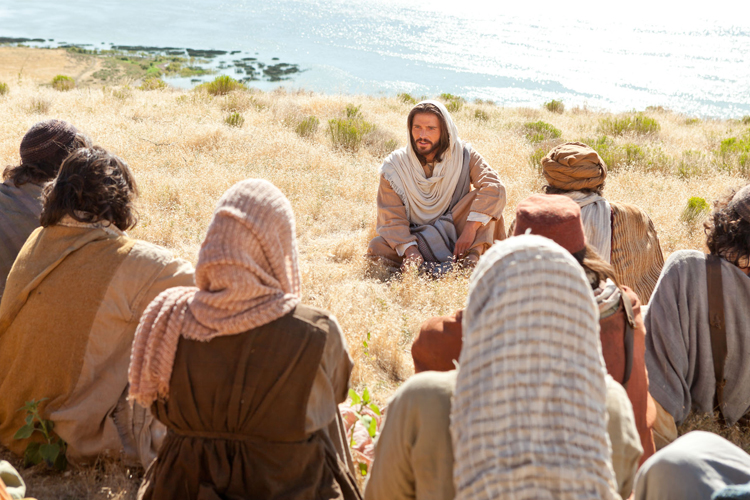
What is the Lord’s Prayer?
The ‘Lord’s Prayer’, also called the Our Father, is the prayer Jesus taught his disciples when they asked him to teach them to pray.
The Lord’s Prayer is the most perfect of prayers, because it was taught by Jesus Christ (Mt 6:6-13), the model and master of prayer. It is prayed in private, in groups and in the liturgy.
The structure of the Lord’s Prayer
The opening invocation:
Our Father, who art in heaven,
Petitions regarding God:
Hallowed by thy name.
Thy kingdom come.
Thy will be done on earth, as it is in heaven.
Petitions for the good things we need:
Give us this day our daily bread,
and forgive us our trespasses
as we forgive those who trespass against us,
and lead us not into temptation
but deliver us from evil. Amen.
The opening invocation
Our Father. We pray ‘Father’ because of our adoption as children of God through Baptism. We pray ‘our’, because this common adoption establishes a familial bond among all Christians. Jesus also promises that prayer in common is particularly powerful (Mt 18:19). To pray ‘our Father’ is also to acknowledge that, as his children, we should imitate him and avoid the things that make us unlike him (c.f. Mt 5:48).
Who art in heaven. This prayer acknowledges that there is a blessed place, the kingdom of heaven, prepared for us. There we shall see God face to face and dwell with him forever; “the Lord God will be their light, and they shall reign for ever and ever” (Revelation 22:3). Praying these words also helps to raise our minds to heavenly things and increases our hope of glory.
Petitions regarding God
Hallowed be thy name is not a prayer for something to be added to God, which is impossible, but for a greater personal knowledge and love of God in the world (John 17:6).
Thy kingdom come is a prayer that God’s present reign on earth might increase and his everlasting kingdom be established by Christ’s coming in glory.
Thy will be done on earth, as it is in heaven. This petition teaches us that our freely offered prayers help to accomplish what God wills for us. Uttering this petition also conforms our wills to his, “not my will, but thine, be done” (Luke 22:42).
Petitions for the good things we need
Give us this day our daily bread petitions God for our natural needs. The original Greek word for ‘daily’ also means ‘super-substantial’ (as it is translated in the Latin Vulgate version of Matthew 6:11). Since this word indicates the Eucharist, this petition can also be understood as being for our supernatural needs. In both senses, this petition counteracts pride by reminding us of our dependency on God.
Forgive us our trespasses petitions God to forgive the debt of sin we owe him. Uniquely in the Our Father, however, the fulfilment of this petition is conditional upon a further action of our own, namely our willingness to forgive others. Jesus warns us explicitly, “If you do not forgive others, neither will your Father forgive your trespasses” (Matthew 6:15). This petition also reminds us that we ask for, rather than demand, God’s mercy.
Lead us not into temptation asks God to remove temptations or to give us the strength to resist them successfully. This petition also reminds us of our need to rely on God for victory against sin: “This petition takes on all its dramatic meaning in relation to the last temptation of our earthly battle; it asks for final perseverance” (ccc. 2849).
Deliver us from evil petitions God to set us free from all evil and especially from ‘the evil one’, the devil. It is also a prayer of hope since it reminds us of God’s power and desire to save us, “If God is for us, who is against us?” (Romans 8:31).
Amen completes the Lord’s Prayer. It means ‘truly’ or ‘let it be so’. It also expresses the expectation that God will grant what we have asked.
This article is originally from ‘CREDO: The Catholic Faith explained’ by CTS.